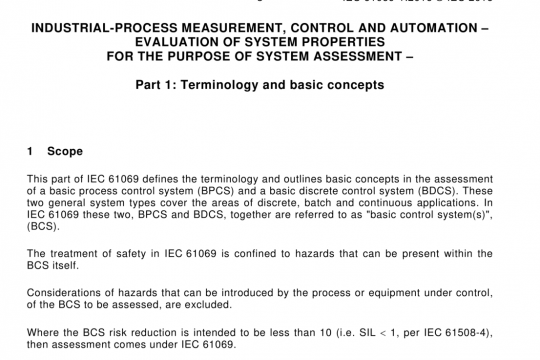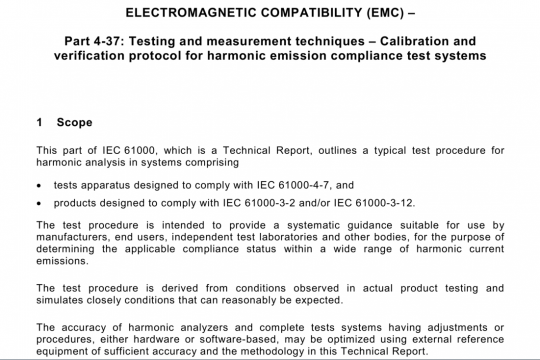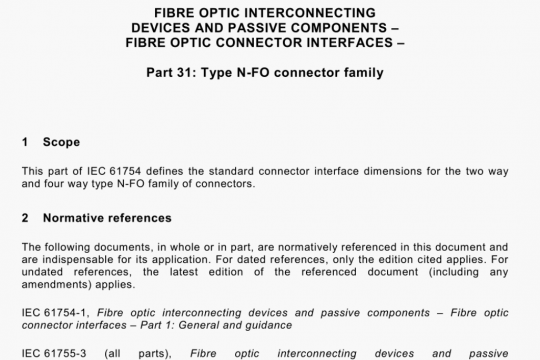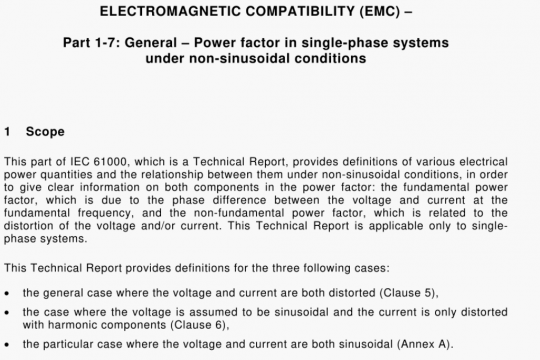IEC 62765-2 pdf free download
IEC 62765-2 pdf free download.Nuclear powers plants – Instrumentation and control important to safety – Management of ageing of sensors and transmitters – Part 2: Temperature sensors.
• The tolerances of TCs for types R, S, B, J, T, E, K, N, and A are given in Clause 5 and Table 12.
• Annex C gives useful information for the selection of a specific type of TC under different environmental conditions, in particular, with neutron irradiation effects.
IEC 61515:2016 covers mineral insulated metal sheathed (MIMS) thermocouple cables and thermocouples. For nuclear application, IEC 62651 specifies the characteristics and test methods for TCs.
5.3 Interface between the sensors and process in IEC standards
5.3.1 Thermowell
A temperature sensor, RTD and thermocouple, can be used either in direct contact with the process to be measured (bare) or inside a thermowell, which can protect the sensors from the environmental conditions.
Subclause B.2.1 and Clause C.6 of IEC 62342:2007 discuss ageing effects and a performance degradation of response time due to interface problem of thermowell.
5.3.2 Cable connectors for temperature sensors
RTD cable connectors can be an integral part of RTD assembly with seals for electrical connection to RTD cable. For TC cable connection, there can be joint connections between TC cables and extension/compensating cables.
IEC 62651 specifies the requirements of design, installation and operation for TC cable connectors. Subclause B.4.3 of IEC 62342:2007 discusses ageing management of connectors.
5.3.3 Cables of temperature sensors
The characteristics for cables of temperature sensors depend on the type of the sensors. RTD uses a standard instrument cable. However, materials and characteristics of cables for TCs are different from those for RTDs.
For an example of type K thermocouple, TC cables in Figure 1 consist of a positive cable (metal A, KP) and a negative cable (metal B, KN). The EMF signal can be transmitted with extension cables and compensating cables to the temperature signal processing part. The metal alloys of extension and compensating cables can be different from that of the type K thermocouple cables (i.e. KP and KN).
Subclauses 6.4.3.1.2 to 6.4.3.1.3 of IEC 62651 :2013 describe the installation requirements of TC cables in NPPs. Table 1 of IEC 60584-3:2007 specifies the tolerances for various types of extension/compensating cables. IEC 62465 discusses electrical tests for RTD cable testing which consist of Time Domain Reflectometry (TDR) test and, insulation resistance (IR) test with respect to ageing management of cables.
5.3.4 Sheath for temperature sensor cable
Sheath is a protective part of temperature sensor cable. Sheathed TC cable is embedded in a mineral insulation within a gas-tight, metal protecting tube as a sheath, with the two leads brought out for measurement through a moisture-proof seal.
IEC 60737 specifies the sheaths of RTDs and TCs in NPPs and IEC 61515:2016 establishes the requirements for simplex, duplex, and triplex MIMS cables as base-metal conductors of Types K ,N, etc.
5.4 Ageing effects of temperature sensors
Ageing of temperature sensors can cause measurement errors, erratic signals, spikes, noise, degradation of response time, and other anomalies. Ageing effects can also invalidate the environmental qualification required to operate in harsh environments during accident conditions. Neutron flux can affect thermocouple alloys causing structural changes and producing EMF measuring errors. Over a period of time, flow-induced vibration and mechanical shock that can occur in normal service can result in the cracking of the temperature sensor seal allowing moisture ingress into the sensor, which could affect the sensor indication. Examples of ageing effects and potential causes are shown in Table 1 . Further, 6. 145 of SSG-39:2016 shows an example of means to account for ageing effects, and 6.144 recommends techniques for identification of ageing mechanisms.IEC 62765-2 pdf download.




